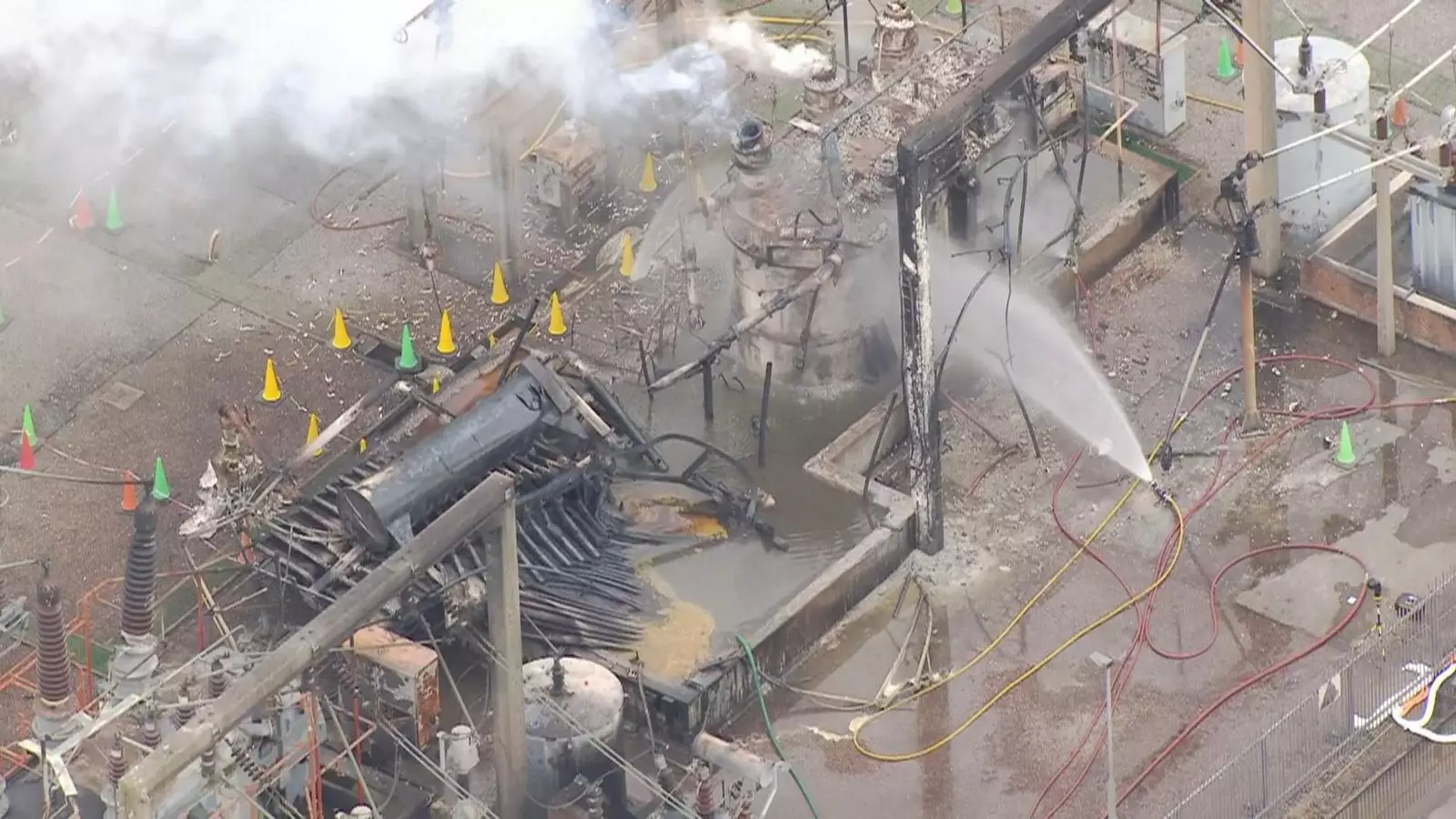The recent electrical failure at Heathrow Airport, which caused the disruption of approximately 1,300 flights, reveals the precarious balance between technological confidence and operational reality. This incident, initiated by a fire that took out a substation in Hayes, has provoked contrasting narratives from the National Grid and Heathrow management, igniting debate about infrastructure resilience and responsibility in critical systems.
John Pettigrew, CEO of National Grid, asserted that despite the fire, Heathrow had adequate backup power sources available, indicating the airport should have been able to maintain operations as if the failure were no more than a blip in the vast network of energy supply. His confident assertion that “each substation individually can provide enough power to Heathrow” paints a picture of a robust energy framework that is seemingly unshakeable. Yet, this bravado clashes sharply with the reality articulated by Heathrow’s own spokesperson. This juxtaposition raises questions about the ethics of accountability and the disparity between operational capabilities and expectations.
The Inconvenient Truth Behind Resilience
Heathrow’s operational procedures mandated the shutdown of “hundreds of critical systems” to ensure safety during the disruptions. This necessity speaks to a dangerous flaw in complacency regarding contingency planning; presumably sophisticated systems that should ensure seamless transitions during crises instead turned into hurdles. The fallout from the incident highlights how even supposedly resilient infrastructures can falter when faced with unforeseen events.
Moreover, an alarming revelation from a report by consultancy firm Jacobs from over a decade ago indicates that vulnerabilities in the airport’s electrical supply were already detected. With insights that explicitly warned of the potential impacts of outages on passenger services and operations, it begs the question: why were these predispositions ignored? The reality is that while safety measures were in place, the mitigative plans may not have been robust enough to absorb such a disruption without severe ramifications.
A Call for Accountability in Infrastructure Management
The failure of a backup transformer adds another layer of complexity to this narrative. When critical systems require safe shut-downs and systematic reboots after a rare, yet monumental power failure, one cannot help but wonder if there were too many assumptions made regarding redundancy in energy systems. It’s easy to project confidence when discussing capability but far more pressing is the need for actionable accountability when failures occur.
If facility managers or corporate leaders rely on the untested condition of their back-up systems as parts of an infallibility narrative, they risk significant operational failures. To quote Pettigrew himself, this incident marks an “unprecedented” occurrence, yet it underscores a systemic issue: Overconfidence in infrastructure without rigorous adherence to risk management can expose even the largest enterprises to disruption.
The Broader Implications for Future Air Travel
As Heathrow serves as a nexus for air travel across Europe with millions of passengers relying on its operational capacity, the consequences of such incidents ripple far beyond the immediate inconveniences faced by those trapped in the turmoil of cancellations and delays. The very integrity of operational systems in high-stakes environments may come into question if pre-existing vulnerabilities are not addressed adequately and proactively.
Furthermore, the shift from a reactive to a proactive infrastructure management paradigm must be prioritized. Investment in on-site generation, strengthening connections, and ongoing risk assessments should not just be protocol but a cultural norm within corporate mindsets. With millions of lives entrusted to these facilities, the stakes are too high for adherence to previous failures to yield the complacency needed for progress.
Both the National Grid and Heathrow must elevate their accountability frameworks and embrace transparency regarding the potential pitfalls inherent in their operations. As customers and stakeholders, the public must demand more than just assurance; they deserve confidence in secure infrastructures capable of withstanding the unpredictability of modern operational environments. It’s time to fortify our critical transportation networks, for the costs of neglecting the lessons of history can be devastating.


Leave a Reply